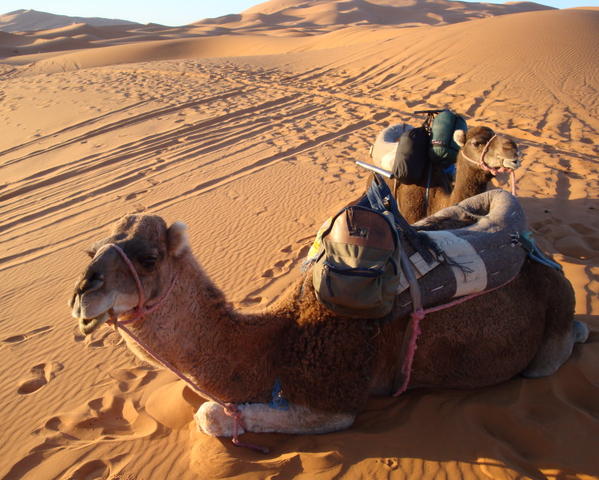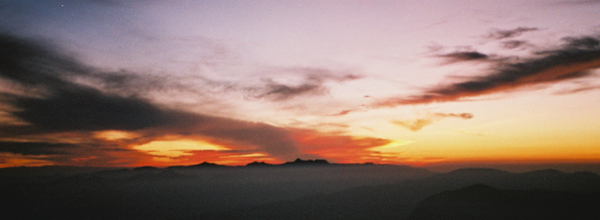
Why do we travel? What makes us up sticks, subject ourselves to bleary eyed early mornings, hideous flights and unsettlingly new diets? Why do some choose to flop somewhere hot whilst others subject themselves to privation in little visited inhospitable regions?
For many it is seemingly simple, we have to. It's in our blood, an itchy footed restless careless desire to up roots and see and do something new, to break the routine of life.

So, at a time of year when most people's travel plans are bare, waiting to be filled with ideas and inspiration, it is the perfect opportunity to take a step back and pick apart what drives us to travel? Yes there are the obvious answers, rest, indulgence, escape, excitement, but what underlies these desires? Do we travel to consume, to experience a mythological adventure, is it about change or is it deeper than that, is it a religious experience?
1. A religious ritual?
In modern secular society, we're somewhat starved of decent life-changing rituals. You'd be hard-pressed to argue that a stag-night is as mind-blowingly transformative as the Amerindian vision quest (despite, perhaps, the noble efforts of the best man). But regardless, we all still partake in rituals. Where more so than amongst backpackers? They visit the same places, wear the same uniform, repeat the same greetings - rituals are built upon these pre-cut pattern of acts and utterances. Upon their return from the wilderness, our young vagrants are transformed (or reformed) into worldly-wise Westerners. For many in the West today, overseas travel has come to fill the void vacated by 'real' religions, providing meaning, purpose, awe and wonder, as well as a sense of belonging.
2. A mythological adventure
'Adventure' is derived from the Latin advenire, 'to arrive, come about or befall'. As travel is more or less a matter of letting things befall one, of submitting to the new and unfamiliar in the pursuit of pleasure, it is, by definition, an adventure. Tourism allows us to live out fantasies of adventure, escape and 'paradise on earth'. It is an opportunity to test ourselves in unfamiliar circumstance, to prove that we are more than our 9-5 cubicle job suggests.
3. A change
For many of us, the glory of travel is change, change from our routines, change from the irritations of weather, work and culture. We swap city for country, affluence for simplicity, fast- for slow-living (or vice versa), sloth for action and security for risk. Seeing new places, trying new things (e.g. foods, activities, languages), meeting new people - it is all about change. Simply by changing our surroundings alone, we are able to change our mindset and free ourselves from the stresses and strains of everyday life.
4. An opportunity to consume
Modern society is preoccupied with consumption. We consume not simply to survive, but to achieve happiness, to build our status and self-perception. Travel is not immune from this insatiable consumerism. When we travel we consume cultures, experiences and vistas like brands. So travel makes a commodity of local culture. Everything comes with a price, a visit to the palace - $12; mountain trek - $35; traditional dance performance - $8; sense of self-worth - priceless. Today's holiday brochures boast bargains like an Argos catalogue; instead of homeware and cheap electronics, we find tigers, temples and tribal villages. All are commodities, just the same. We buy these things for the same reason we buy any other nonessential product: to look better, feel better or else appear better. We are, in effect, cultural cannibals, consuming culture so as to assimilate some aspect of it. Thus, New York confers cosmopolitanism, India spirituality, the Caribbean serenity and so on. And then there are optional extras, side dishes if you like. A five-star hotel suggests status, a wine tour imparts taste, the prefix 'eco-' accords ethical acumen. In the realm of the tourist-cannibal, you are what you eat.
If you enjoy this post and like thinking about travel at a level deeper than top 5 lists and photographs of infinity pools, then you'll also enjoy a more exhaustive investigation and discussion on why we travel and the impact of our travel in our recent travel essays series on the Tourdust blog.
